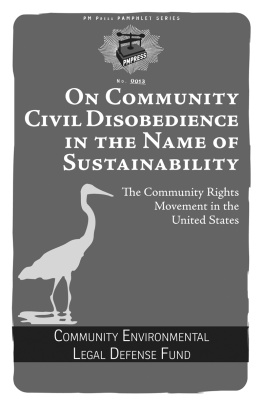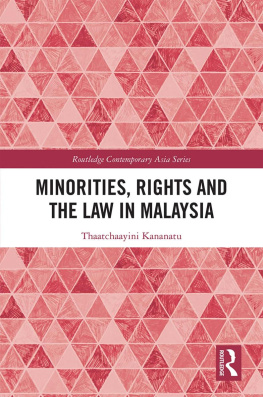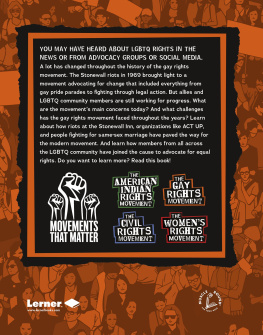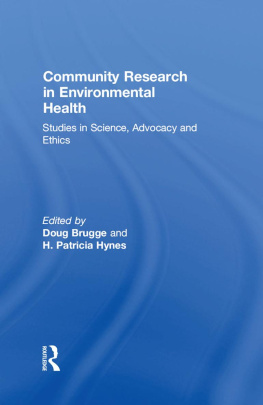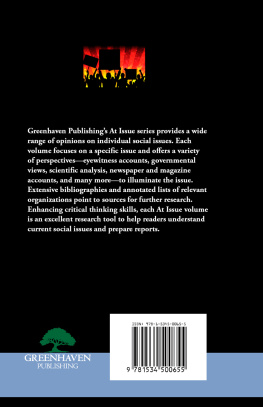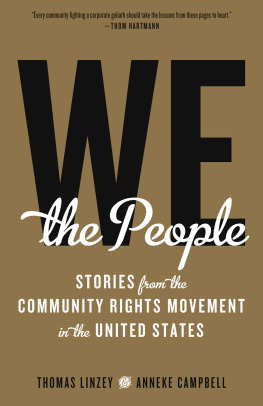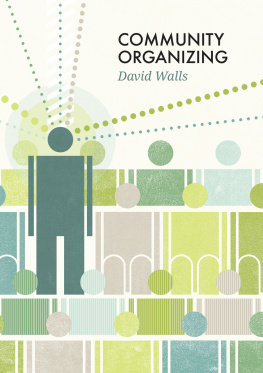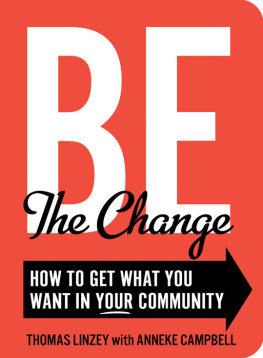PM PRESS PAMPHLET SERIES
| 0001: | BECOMING THE MEDIA: A CRITICAL HISTORY OF CLAMOR MAGAZINE
By Jen Angel |
| 0002: | DARING TO STRUGGLE, FAILING TO WIN: THE RED ARMY FACTIONS 1977 CAMPAIGN OF DESPERATION
By J. Smith and Andr Moncourt |
| 0003: | MOVE INTO THE LIGHT: POSTSCRIPT TO A TURBULENT 2007
By The Turbulence Collective |
| 0004: | THE PRISON-INDUSTRIAL COMPLEX AND THE GLOBAL ECONOMY
By Eve Goldberg and Linda Evans |
| 0005: | ABOLISH RESTAURANTS: A WORKERS CRITIQUE OF THE FOOD SERVICE INDUSTRY
By Prole |
| 0006: | SING FOR YOUR SUPPER: A DIY GUIDE TO PLAYING MUSIC, WRITING SONGS, AND BOOKING YOUR OWN GIGS
By David Rovics |
| 0007: | PRISON ROUND TRIP
By Klaus Viehmann |
| 0008: | SELF-DEFENSE FOR RADICALS: A TO Z GUIDE FOR SUBVERSIVE STRUGGLE
By Mickey Z. |
| 0009: | SOLIDARITY UNIONISM AT STARBUCKS
By Staughton Lynd and Daniel Gross |
| 0010: | COINTELSHOW: A PATRIOT ACT
By L.M. Bogad |
| 0011: | ORGANIZING COOLS THE PLANET: TOOLS AND REFLECTIONS TO NAVIGATE THE CLIMATE CRISIS
By Hilary Moore and Joshua Kahn Russell |
| 0012: | VENCEREMOS: VCTOR JARA AND THE NEW CHILEAN SONG MOVEMENT
By Gabriel San Romn |
| 0013: | ON COMMUNITY CIVIL DISOBEDIENCE IN THE NAME OF SUSTAINABILITY: THE COMMUNITY RIGHTS MOVEMENT IN THE UNITED STATES
By Community Environmental Legal Defense Fund |
PM Press PAMPHLET SERIES No. 0013
On Community Civil Disobedience in the Name of Sustainability: The Community Rights Movement in the United States
Community Environmental Legal Defense Fund
ISBN: 978-1-62963-126-4
Copyright 2015
This edition copyright PM Press
All rights reserved
Layout by Jonathan Rowland
PM Press
PO Box 23912
Oakland, CA 94623
www.pmpress.org
Printed in Oakland, CA, on recycled paper with soy ink.
Introduction
SUSTAINABILITY IS ILLEGAL UNDER OUR SYSTEM OF LAW.
I first uttered that sentence during a keynote speech I gave at a progressive conference many years ago. I cant remember which one. What I do remember is my utter frustration with conference attendees that led me to say it.
I had been trying to explain how our system of law in the United States systematically strips communities of the power to adopt and enforce local laws, when those laws come into direct conflict with decisions made by corporations that want to use those communities for various projects. And how our system of law elevates the corporate right to decide, above the rights of you and me to clean air, clean water, and sustainability in general. Which means that corporate projects of all kindsfrom giant factory farms to the dumping of toxic wasteare generally exempted from the community laws that we adopt to protect our rights.
Which, of course, most people living in the United States cant hear because it directly challenges a central myth that weve been fed all of our livesthat we actually live in a democracy where we have the ability and authority (indeed, the right) to govern ourselves within our own communities. Because of our belief in that myth, we have a difficult time hearing anything that doesnt fit within it.
And, of course, we do have the ability to self-govern in areas like how tall the weeds should be on our neighbors lawn, or whether our local government should invest pension monies in tobacco corporations. Or whether our community can keep adult bookstores away from elementary schools. But on the really big issueslike what farming, energy production, or waste management will look like in our communitywere simply out of luck. When we the people try to locally legislate in those areasusually when a corporate factory farm or industrial wind turbine are proposed for our communitywe find that we have both hands tied behind our backs. We are then informed that our municipal governments have no authority to interfere with decisions already made by certain corporations, and that rights claimed by those corporations are not only more important than our rights to clean air and clean water, but that those corporate rights are derived from our very own Constitution.
What do we do then, after we are informed that our system of law leaves us powerless to contest the decision-making authority of those corporations? We try to work around the bedrock system of lawby appealing permits issued under legal frameworks designed by the very corporations that those frameworks are ostensibly supposed to regulate, and by trying to negotiate with the corporations planning those projects. In other words, instead of questioning why corporations can legally treat our communities as sacrifice zones, we accept their authority to do so, while attempting to make their proposed project a little less harmful.
That is, we validate how the existing system operates by leaving it aloneas if handed down to us from aboveand we have no business challenging it. We then content ourselves to call what we have democracy.
Its a good thing that we dont live in the 1840s. Otherwise, we might leave African-Americans and women as property, while merely attempting to regulate the number of lashes a slave could receive, or mandating whether a womans husband or brother had decision-making authority for her. In other words, we wouldnt have contested whether African-Americans and women were property, but simply how that property was treated under the law.
Under our current system of law, our communities remain corporate property by virtue of the relationship between corporate rights and our nonexistent ones, and more often than not, we accept our role by merely arguing over how our community is treated, rather than asserting that we have a right to decide for ourselves.
Thus, we happily content ourselves (at least for the duration of the process) by sending letters to our elected representatives, arguing over pollutant parts per million at regulatory agencies, hiring lawyers to appeal permits, and generally doing everything else but taking aim at a system of law that has divested us of almost all decision-making authority.
We do it because were allowed to participate in certain limited ways, and because we actually believe that we live in a democracy.
A system that operates in this manner, however, is not a democracy. Instead, we have a structure of law based on giving a small handful of corporate decision-makers almost wholesale control over our communities on almost any issue that really matters.
Building economically and environmentally sustainable communitiessomething that our very survival on this planet depends uponcannot be done through a system that elevates the rights of corporate entities driven by unsustainability, above the rights of people and communities interested in establishing a different system. Nor can it be done through a corporate culture whose primary, overriding goal isas historian Richard L. Grossman often saidthe

